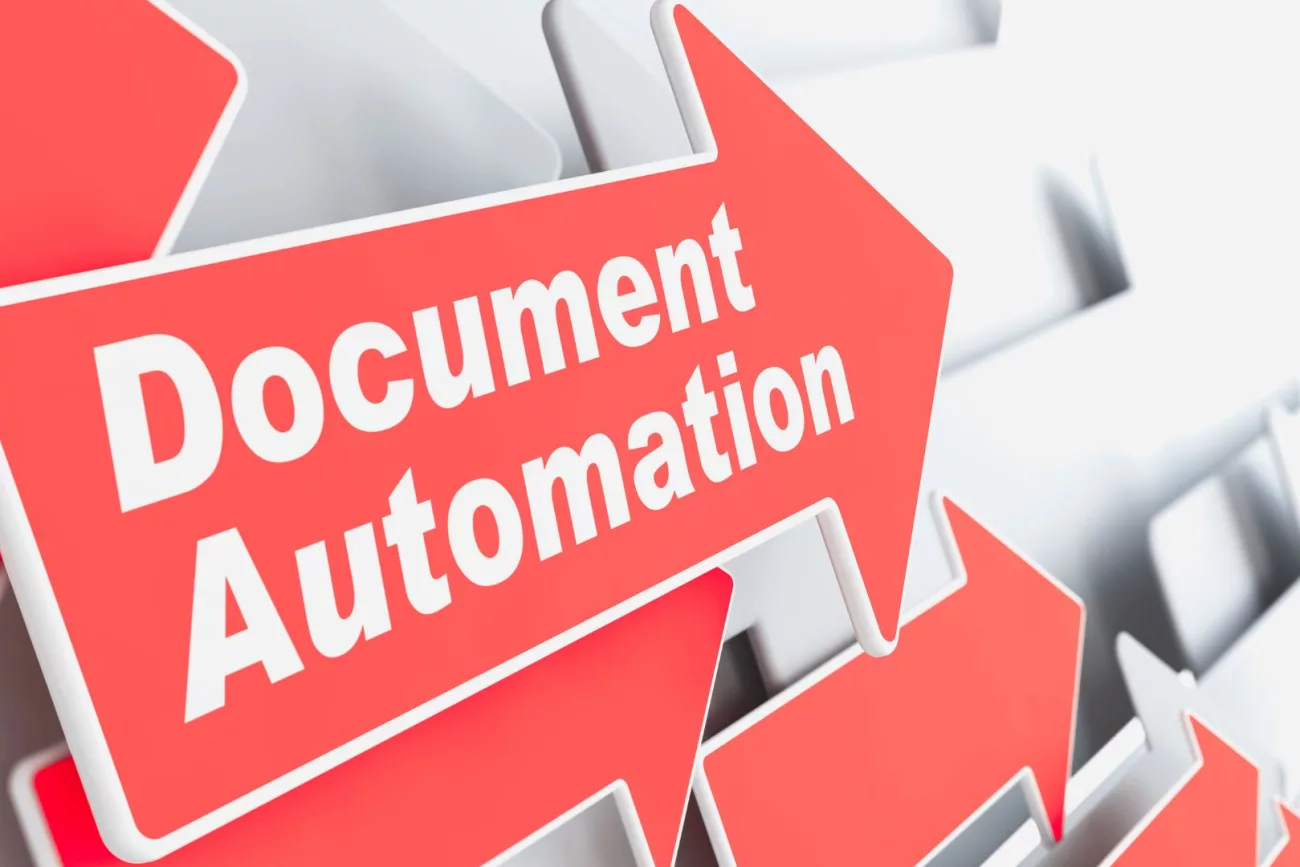
Key Insights for Legal Matter Management in Small Law Firms
- Streamlining Practice: Legal matter management is essential for enhancing efficiency and productivity within small law firms, focusing on automating routine tasks and freeing up attorney time.
- Client Satisfaction: Effective management strategies improve client communication and retention by ensuring timely updates and fostering trust through transparency.
- Leveraging Technology: Adopting the right technology solutions, such as case management software, can transform a small law firm's operations, making it more competitive and efficient.
- Continuous Improvement: Regular evaluation of legal matter management strategies through metrics, feedback, and analytics is crucial for adapting to challenges and optimizing firm performance.
AI Gold Rush in the Gulf: Law, Tech, and Power Shifts
Uncover the Gulf’s ascent in the AI domain, its impact on global politics, legal challenges,
Traact: Legal Tech’s Next Big Disruption?
Explore Traact’s bold claim in revolutionizing legal operations. Will it be a legal tech game-changer
Abogados de Accidentes en Colorado Springs: 3 Cosas que Debes Preguntar!
Si ha sufrido una lesión personal en Colorado Springs, es importante contratar a un abogado
Unlocking Efficiency: A Guide to Legal Matter Management for Small Law Firms
In today’s fast-paced legal environment, managing legal matters efficiently is more critical than ever, especially for small law firms. Legal matter management stands at the heart of a law firm’s operations, influencing everything from client satisfaction to the bottom line.
This article delves into the ins and outs of legal matter management, offering small law firm owners actionable insights and strategies to streamline their practice. Whether you’re looking to refine your current processes or implement a new management system, our guide is here to illuminate the path forward.
Understanding Legal Matter Management
At its core, legal matter management involves the comprehensive oversight of all aspects of legal cases and projects within a law firm. This includes but is not limited to case intake, document management, billing, and client communication. Over the years, the approach to legal matter management has evolved significantly, largely due to technological advancements.
For small law firms, understanding and leveraging these changes is not just about keeping up with the times; it’s about seizing opportunities to enhance efficiency, reduce costs, and provide superior service to clients. In this section, we’ll explore what legal matter management entails and why it’s a cornerstone of successful legal practice today.
Why Legal Matter Management is Crucial for Small Law Firms
Small law firms, characterized by their limited resources and tight-knit teams, stand to gain immensely from effective legal matter management. Here’s why:
- Enhancing Efficiency and Productivity: With the right management strategies, firms can streamline operations, automate routine tasks, and free up valuable time for attorneys to focus on complex legal work. This not only boosts productivity but also enhances job satisfaction among team members.
- Improving Client Satisfaction and Retention: At the heart of legal matter management is the goal of delivering exceptional service to clients. By managing matters efficiently, firms can ensure timely communication, meet deadlines more consistently, and foster trust with their clients, which is crucial for retention and referrals.
- Streamlining Administrative Tasks and Reducing Overhead: Effective matter management helps in identifying inefficiencies and cutting unnecessary costs. By automating administrative tasks, small firms can operate more leanly, allocating resources more strategically to areas that directly contribute to firm growth and profitability.
The Secrets Behind Google’s AI-Powered Search Engine: Prepare to Be Amazed!
Explore the secrets behind Google’s AI-powered search, unravel its incredible evolution, cutting-edge technologies, & awe-inspiring
Unlock the Secrets to Protecting Your Legacy with the Perfect Last Will and Testament!
Mike Ruggles Founder & CEO Instagram Linkedin Follow me on Instagram & LinkedIn for exclusive
Explore CM Murray’s Easy LLP Review Tool
Discover CM Murray’s CheckYourLLPAgreement, a free tool revolutionizing LLP agreement reviews with its intuitive traffic-light
How to Evaluate Your Current Legal Matter Management Processes
For small law firms aiming to boost their efficiency, the first step is a thorough evaluation of existing legal matter management processes. This involves a deep dive into how cases are currently handled, from the initial client consultation to the final resolution. Here’s how to conduct this evaluation:
Step 1: Conduct a Workflow Analysis
- Create Detailed Workflow Diagrams: Utilize diagramming tools such as Lucidchart or Microsoft Visio to create visual representations of your current workflows. Include every step from client intake to case closure.
- Identify Redundancies and Delays: As you map out workflows, pay special attention to repetitive tasks and bottlenecks that cause delays. Highlight these areas for further analysis.
Step 2: Utilize Technology for Data Collection
- Implement Time Tracking Software: Tools like Toggl or Harvest can be used to accurately track how time is spent across different tasks and cases. Analyze this data to identify non-billable tasks that consume significant time.
- Use Client Management Software for Feedback: Deploy surveys and feedback forms through your client management system after case closure to gather insights on client satisfaction and areas perceived as slow or inefficient.
Step 3: Analyze Communication Channels
- Audit Internal Communication: Evaluate the tools and methods used for internal communication (e.g., email, Slack, Microsoft Teams). Look for communication breakdowns that could lead to inefficiencies.
- Review Client Communication Practices: Examine how you communicate with clients, including the frequency, channels used, and clarity of information provided. Inefficient communication can lead to misunderstandings and delays.
Step 4: Review Document Management Systems
- Assess Document Accessibility and Organization: Check how documents are stored, accessed, and shared within your firm. Inefficient document management can significantly slow down case progress.
- Evaluate Security Measures: Ensure that your document management system provides adequate security and privacy features to protect sensitive client information.
Step 5: Solicit Team Feedback
- Conduct Team Meetings: Hold meetings with your team to discuss the workflow diagrams and time tracking data. Team members can often provide insights into inefficiencies and suggest practical improvements.
- Create an Improvement Plan: Based on feedback and data analysis, develop a plan to address identified inefficiencies. This might include adopting new technologies, redefining workflows, or providing additional training to staff.
Step 6: Set Benchmarks and KPIs
- Establish Key Performance Indicators (KPIs): Set clear metrics to evaluate the success of changes made, such as reduced time on administrative tasks, increased billable hours, or improved client satisfaction scores.
- Regular Review Cycles: Implement a schedule for regular review of KPIs to ensure continuous improvement. Adjust your strategies based on these reviews to further refine your legal matter management processes.
Step 7: Pilot and Scale Solutions
- Pilot New Processes and Tools: Before rolling out changes firm-wide, conduct pilot tests with selected cases or teams. This allows you to assess the impact and make necessary adjustments.
- Scale Successful Practices: Once a new process or tool has proven successful in the pilot phase, gradually implement it across the firm, providing training and support as needed.
This evaluation will not only pinpoint where your firm can improve but also set a baseline to measure the impact of any changes you implement.
Key Components of Effective Legal Matter Management
Effective legal matter management encompasses several critical components, each contributing to the streamlined operation of a law firm. For small firms especially, focusing on these key areas can lead to significant gains:
Case and Document Management Strategies:
- Digitize All Documents: Begin by scanning all physical documents into digital formats. This not only saves space but also makes it easier to organize and retrieve documents.
- Implement a Document Management System (DMS): Choose a DMS designed for law firms, such as Clio, NetDocuments, or iManage. Look for features like full-text search, version control, and integration with email and other tools your firm uses.
Actionable Advice:
- Regularly Audit Your File Organization Structure: Ensure your digital filing system remains intuitive as your firm and caseload grow. Use consistent naming conventions and organize files in a hierarchical structure that mirrors your areas of practice.
- Train Staff on Document Handling Protocols: Conduct training sessions on how to use your DMS effectively, including how to tag and categorize documents, ensuring everyone adheres to the same organizational standards.
Time Tracking and Billing Strategies:
- Choose an Integrated Time Tracking and Billing Solution: Solutions like TimeSolv, Bill4Time, or the billing features within practice management software like Clio or PracticePanther can streamline the tracking and invoicing process.
Actionable Advice:
- Implement a Mobile Time Tracking Policy: Encourage attorneys and staff to record time on-the-go with mobile apps provided by your time tracking software. This minimizes lost billable hours and improves accuracy.
- Automate Invoice Creation and Follow-up: Use your billing software to automatically generate invoices based on recorded time and expenses. Set up automated reminders for overdue payments to reduce the time spent on accounts receivable management.
Communication and Collaboration Tools Strategies:
- Adopt a Unified Communication Platform: Platforms like Slack or Microsoft Teams can centralize internal communications, while secure client portals can facilitate encrypted client communications.
Actionable Advice:
- Create Communication Protocols: Establish guidelines for how and when to use different communication tools, such as what information should be communicated via email versus internal chat platforms.
- Leverage Video Conferencing for Client Meetings: Utilize tools like Zoom or Microsoft Teams for virtual client meetings, making it easier to connect with clients without requiring them to travel to your office.
Client Management Strategies:
- Use a Client Relationship Management (CRM) System: A CRM system, like Lexicata or Zola Suite, can help manage client data, preferences, and interactions, providing insights into client needs and improving service delivery.
Actionable Advice:
- Personalize Client Interactions: Use the data in your CRM to personalize communications and services. For example, noting a client’s preferred name and communication method can enhance their experience with your firm.
- Automate Client Intake and Follow-Up: Implement automated workflows for client intake forms, appointment scheduling, and follow-up emails. This not only saves time but also ensures a consistent and professional client experience from the start.
Technology’s Role in Legal Matter Management
The advent of legal tech has transformed how small law firms manage their matters. Technology offers tools for automation, efficiency, and enhanced client service. Here’s how small law firms can harness technology in legal matter management:
- The Impact of Legal Tech on Matter Management: Legal technology solutions, from case management software to AI-powered legal research tools, can automate routine tasks, provide data-driven insights, and improve accuracy.
- How to Choose the Right Technology Solutions: When selecting technology solutions, consider factors like ease of use, integration with existing tools, cost, and the specific needs of your practice area. It’s also crucial to evaluate the security features to protect client confidentiality.
Implementing the right technology can be a game-changer for small law firms, enabling them to compete more effectively with larger practices and deliver superior service to their clients.
Implementing a Legal Matter Management System
Choosing to implement a new legal matter management system is a significant step toward modernizing your law firm. Here’s a roadmap to ensure a smooth transition:
Step-by-Step Guide:
- Assessment: Begin with a needs assessment to determine your firm’s specific requirements.
- Research: Look into different legal matter management systems, focusing on features, scalability, and user reviews.
- Decision: Select a system that aligns with your firm’s needs, budget, and long-term goals.
- Implementation Plan: Develop a detailed plan that includes timelines, training sessions, and milestones.
- Training: Prioritize comprehensive training to ensure everyone is comfortable with the new system.
- Go Live: Start using the system with real cases, ready to adjust processes as needed.
- Review and Adjust: Regularly review the system’s performance and make adjustments based on feedback and evolving needs.
Best Practices for Transition and Adoption:
- Engage Your Team Early: Involvement from your team from the early stages can help ensure buy-in and smoother adoption.
- Start Small: Pilot the system with a small number of cases before a full rollout.
- Provide Ongoing Support: Make sure support is available to address any issues promptly.
Training Your Team on Legal Matter Management
The success of any legal matter management system heavily relies on the team using it. Effective training is non-negotiable:
- Developing a Training Plan: Tailor your training plan to fit the roles and expertise levels within your team. Include both the technical aspects of any new software and the procedural changes in your matter management approach.
- Ongoing Support and Resources: Recognize that training is not a one-time event. Offer ongoing support and resources, such as access to online tutorials, FAQs, and regular check-in meetings to address any challenges.
Legal Matter Management for Different Practice Areas
Legal matter management is not one-size-fits-all. Different practice areas have unique challenges and requirements:
Family Law
Client Communication: Utilize secure client portals for sensitive exchanges, ensuring privacy and ease of access for clients dealing with emotional legal matters.
Document Handling: Implement a document management system that allows for the categorization of sensitive documents, such as custody agreements and divorce papers, with advanced permissions to ensure confidentiality.
Case Timeline Management: Employ case management tools that feature timeline tracking to keep clients informed about significant dates and deadlines, reducing anxiety and improving client experience.
Immigration Law
Client Tracking: Use client management software that can track the status of applications, court dates, and communication logs with government agencies to keep cases organized.
Document Management and Compliance: Adopt document management solutions that help in organizing vast amounts of paperwork and ensuring compliance with rapidly changing immigration laws and policies.
Automated Updates and Reminders: Leverage automation tools for sending updates to clients on their case status and upcoming deadlines, ensuring they are always informed and prepared.
Personal Injury Law
Case Evidence Organization: Implement solutions for organizing and storing case evidence, such as photos, medical records, and expert testimonies, in easily accessible formats.
Workflow Automation for Settlements and Negotiations: Use workflow automation tools to streamline the process of settlements and negotiations, keeping track of offers and ensuring timely responses.
Client Communication: Ensure robust client communication channels that allow for updates on case progress, especially during lengthy litigation processes, to keep clients reassured and engaged.
Business Law
Contract Management Systems: Invest in contract management software that not only stores but also tracks the lifecycle of contracts, including creation, approval, renewal, and expiration.
Compliance Tracking: Utilize compliance management tools tailored to your clients’ industries to ensure ongoing compliance with relevant regulations and laws, mitigating risks.
Document Automation: Adopt document automation tools for the quick generation of standard legal documents, saving time and reducing errors in repetitive tasks.
Estate Planning
Document Organization and Access: Use estate planning software that organizes wills, trusts, and other critical documents, providing secure but straightforward access for clients and designated representatives.
Client Relationship Management (CRM): Implement a CRM system designed for law firms, allowing for personalized follow-ups and reminders about important estate planning milestones or updates.
Digital Executor Services: Offer services utilizing digital executor tools to manage digital assets and online accounts, a growing concern in estate planning.
Adapting Technology and Processes
Across all practice areas, the key to successful legal matter management lies in selecting technology and processes that integrate seamlessly into your existing workflow, enhance efficiency, and provide tangible benefits to both the firm and its clients. When evaluating new technologies:
- Consider User-Friendliness: Choose tools that are intuitive for your team and clients to use, minimizing the learning curve and resistance to adoption.
- Customization Capabilities: Opt for platforms that allow customization to fit the unique needs of your practice area, from custom fields in databases to tailored communication templates.
- Scalability: Ensure the solutions you implement can grow with your practice, accommodating more clients and cases without a drop in performance or user experience.
By focusing on these specific strategies and technologies, law firms specializing in family law, immigration law, personal injury law, business law, and estate planning can significantly improve their legal matter management practices, leading to better client outcomes, enhanced efficiency, and a competitive edge in their respective fields.
Cómo encontrar al mejor abogado de accidente de camión para su caso
Mike Ruggles Founder & CEO Instagram Linkedin Sígueme en Instagram y LinkedIn para contenido exclusivo
🚀 Google Ads Mastery for Lawyers + AI Insights!
Dive into AI’s legal landscape, governance frameworks, and a must-read guide on leveraging Google’s prime
Meta’s Next AI to Rival GPT-4? Shocking Inside Scoop!
Meta aims to benchmark against GPT-4. Explore OpenAI’s innovations, legal challenges, and the AI future
Managing Client Expectations Through Effective Matter Management
Setting and managing client expectations is pivotal in legal practice. Here’s how effective legal matter management plays a crucial role:
- Communication Strategies: Regular, clear communication is key. Utilize matter management tools to schedule updates and automate reminders, ensuring clients are always informed about the status of their case.
- Setting and Managing Realistic Timelines: Use historical data from your matter management system to set realistic timelines for case resolution, and communicate these timelines clearly to your clients.
- Building Trust with Transparency: Offer clients access to a secure portal where they can view case documents and updates. This transparency builds trust and fosters a stronger attorney-client relationship.
Security and Confidentiality in Legal Matter Management
In the digital age, protecting sensitive information is paramount. Here’s how to ensure security and confidentiality:
- Best Practices for Data Protection: Implement strong passwords, two-factor authentication, and encryption for all digital communications and stored information. Regularly update and patch your systems to protect against vulnerabilities.
- Compliance with Legal and Ethical Standards: Stay informed about and comply with relevant privacy laws and ethical standards regarding client confidentiality. Regularly review your practices to ensure they meet these requirements.
- Training Staff on Security Protocols: Ensure that all team members are trained on the importance of data security and understand how to handle confidential information properly.
Cost-Effective Legal Matter Management Solutions
Balancing budget constraints with the need for effective matter management tools is a challenge for small law firms. Here are strategies for finding cost-effective solutions:
- Tools and Resources for Small Law Firms: Explore cloud-based legal matter management solutions that offer scalable pricing models. Many providers offer features essential for small firms without the need for a large upfront investment.
- Balancing Budget and Functionality: Prioritize your firm’s needs to determine which features are essential. This can help you choose a solution that offers the best value for your specific requirements.
- Leveraging Free and Open Source Options: Some open-source tools can be adapted for legal matter management. While they may require more customization, they can offer significant savings over commercial products.
Evaluating the Success of Your Legal Matter Management Strategies
Continuous improvement in legal matter management requires regular evaluation of your strategies’ effectiveness. Here’s how to assess and refine your approach:
- Metrics and Benchmarks: Define clear metrics for success, such as reduced administrative time, increased billable hours, or improved client satisfaction scores. Use these benchmarks to measure the impact of your matter management strategies.
- Feedback Loops and Continuous Improvement: Implement regular feedback mechanisms, both internally within your team and externally from your clients. Use this feedback to make informed adjustments to your processes and tools.
- Leveraging Analytics: Most modern legal matter management systems come with analytics features. Use these tools to gain insights into your firm’s performance and identify areas for improvement.
The Future of Legal Matter Management
Staying ahead in the legal field requires an eye on the future. Here are key trends and emerging technologies that are shaping the future of legal matter management:
- Artificial Intelligence and Machine Learning: AI is increasingly being used to automate routine tasks, from document review to legal research, allowing lawyers to focus on more complex and strategic aspects of their cases.
- Blockchain for Enhanced Security: Blockchain technology offers new ways to manage contracts securely and transparently, potentially revolutionizing aspects of legal matter management related to contract law and intellectual property.
- Remote Collaboration Tools: As remote work becomes more common, tools that facilitate collaboration and communication among distributed teams are becoming essential components of legal matter management.
Future-Proof Your Firm: Embracing Next-Gen Legal Matter Management
Implementing effective legal matter management practices is essential for small law firms aiming to enhance efficiency, improve client satisfaction, and stay competitive in a rapidly evolving legal landscape. By embracing technology, soliciting feedback, and continuously evaluating and adapting your strategies, your firm can not only meet the challenges of today but also anticipate and prepare for the demands of tomorrow.
As we close this guide, remember that the journey towards excellence in legal matter management is ongoing. With dedication, adaptability, and a focus on continuous improvement, small law firms can achieve remarkable efficiency and provide exceptional value to their clients.
📢 Join the Vanguard of Legal Innovation
🔥 Ready for the Legal Evolution?
Join our newsletter for unparalleled insights, debates, and discussions that are shaping the future of law. Be a part of a community that’s redefining the paradigm of legal practice. Embrace innovation, challenge norms, and contribute to the evolution of the legal landscape.
Share this post
Frequently Asked Questions (FAQs)
Legal matter management involves overseeing all aspects of legal cases and projects within a law firm, including case intake, document management, billing, and client communication.
It enhances efficiency, improves client satisfaction, and streamlines administrative tasks, allowing small firms to compete effectively and grow.
Technology offers tools for automation, efficiency, and enhanced client service, including case management software and AI-powered legal research tools.
Small law firms can explore cloud-based solutions with scalable pricing models and consider open-source tools for significant savings.
By defining clear metrics for success, implementing regular feedback mechanisms, and leveraging analytics to gain insights and identify areas for improvement















